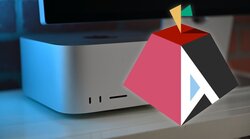news
Asahi Linux hits an M4 support roadblock
The Asahi Linux project is having trouble bringing the operating system to M4 Macs, with some chip changes making working with the latest Apple Silicon models a lot tougher.
Asahi Linux is a project to make the Linux kernel work with Apple Silicon, so that Linux users can natively use modern Macs with Linux. After having success with M1 and M2 chips, the project is running into issues when trying to work with M4.
In a post to Mastodon on April 4, developer Sven Peter describes the work to add M4 support to Asahi Linux as "rather painful." This is in comparison to the challenges the project faced when it came to supporting M1 and M2.
The project, for the moment, is focusing on upstreaming M1 and M2 support, but it has started to look towards the M4 workload. Unfortunately, trying to run the m1n1 bootloader isn't working properly for some M4 users who have tried it, as Apple has changed something for the M4 generation.
Also here:
-
Adding Linux Support For The Apple M4 ‘Going To Be Painful’
Fans of running Linux on Apple’s hardware are in for some bad news, with the Asahi Linux project warning that adding support for Apple’s latest M4 “is going to be rather painful.”
The Asahi Linux developers have been working over the last few years to reverse engineer drivers for Apple’s M-series chips, giving users a way to run Linux on some of the best hardware on the market. Unfortunately, in a post on Mastodon, Asahi developer Sven Peter says the M4 is proving to be more challenging.
Linux Magazine:
-
Asahi Linux Runs into Issues with M4 Support » Linux Magazine
The Asahi Linux project was created to bring Linux to Mac hardware running Apple Silicon. So far, things have been fairly smooth sailing for the project. However, with the M4 chips, things haven't exactly gone as planned.
On Mastodon, Sven Peter had this to say: “Looks like M4 support for Asahi Linux is going be rather painful. We’re still focusing on upstreaming M1/M2 support, but other people have been trying to bring up m1n1 on M4, and it looks like a few things changed.”
What's changed? According to Peter, “When configuring a macho boot object we now get dropped into an environment where Apple’s SPTM is running in GL2 and we are supposed to talk to it from EL2 with MMU already enabled to setup pagetables. This neither works for Linux nor for running XNU under our hypervisor to reverse engineer the new hardware.”

